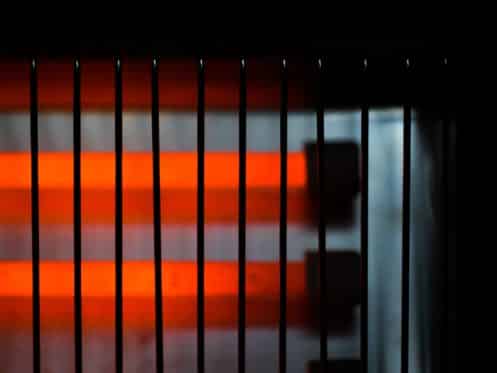It’s been estimated that space heaters are responsible for more than 25,000 home fires every year. This staggering statistic can initially make some homeowners hesitate when it comes to using a space heater for supplemental heat in their houses. The reality is that as long as you’re using the space heater safely, you shouldn’t have a problem.
Never Run It When You’re Not Home
One of the biggest safety tips that will help to reduce your risk of experiencing a fire from using a space heater is simply never running the unit when you’re not home. You should always be home and in control of your space heater at all times when it’s running. Never let it run while you’re sleeping, either. It’s very easy for these systems to get knocked over by a pet or something else in your household. When this happens, the unit can catch on fire, or it can overheat on its own.
Have Fire Detectors That Work
Another must-follow safety tip is to have active smoke detectors in your residence. You want to have a smoke detector on every level of your home and detectors right outside the bedrooms of your house. It’s a good rule of thumb to test your smoke detectors at least once a month. Make sure that you switch out the batteries every six months to a year to ensure that they stay fresh.
Placement Is Key
You need to place your space heater in an area that’s free from interaction with other objects and people. You want to avoid placing it in any doorways or in any of the main traffic routes of your house. You also want to put your space heater as low in your room as possible. This will ensure that the heat that comes out of it will be delivered to the bottom of the room, and then naturally work its way up toward the top.
You can place the unit on hardwood, vinyl, and laminate flooring with ease. Always avoid placing it directly on carpeting. You should never place your heater on an unlevel surface either, as it can be prone to tipping over and starting a fire. In addition, you don’t want to place it on anything that could be flammable, including cabinets, tables, and furniture.
Follow the 3-Foot Rule
To ensure that your space heater is at a safe distance from objects in your residence, it should have a 3-foot buffer zone. This means that it should be placed at least 3 feet away from books, curtains, furniture, carpeting, and anything else flammable inside of your home. If possible, consider placing your space heater even farther away from these objects.
Teach Your Kids About a Buffer Zone
If you have young children in your home, it’s important that you speak to them about space heater safety. There should be an adequate buffer zone that they should avoid around the space heater. For example, you may set a rule that they can’t walk within 5 feet of the space heater. This helps to instill safety practices in your children so that they don’t get injured by the space heater.
Get the Ideal Size
In order to ensure that the space heater you get will take care of heating the room that you want it to, you need to make sure that it’s the right size. Getting a unit that’s too small for your space can prevent the room from heating up to your desired temperature.
To get the ideal size of space heater that you’ll need, you’ll want to calculate the square footage of the room that it’s going to be used in. Go ahead and multiply that total square footage by 10 to get the total wattage that your ideal space heater should be. You may find for larger rooms that you need to use two space heaters in combination to get the heat up to the temperature that you desire.
Must Have a Tip-Over Switch
Another must-have safety feature for your space heater is a tip-over switch. Whenever your unit tips over from its level position, it will trigger a switch that will shut it off. This will help to prevent your space heater from continuing to run after it falls over. A tip-over switch stops fires from happening.
Professional Heating Services
Affordable Service Solutions Heating & Air Conditioning provides professional heating services throughout the Richmond, KY, area. You can rely on us for all of your cooling and heating installation, repair, and maintenance needs. We also provide indoor air quality assistance. Contact us today if you have a heating issue you need addressed.


